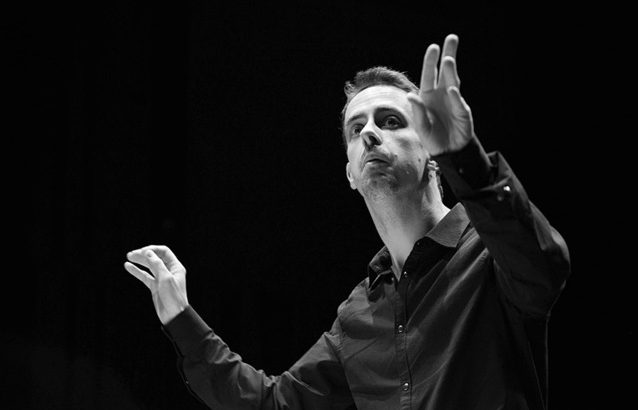Pat O’Kelly
New Music Dublin, cancelled in 2018 due to weather, then partially salvaged last September resurrected itself at the beginning of this month for an action-packed weekend.
However, one would require exceptional stamina to cover the broad spectrum of its endeavours. As festival director John Harris commented, “the range of music being performed is immense…and it represents an incredible outpouring of Irish and international musical creativity”.
The festival enjoys Arts Council funding together with substantial RTÉ input through its orchestras, quartet and youth choirs. The National Concert Hall is the lynchpin of the entire operation.
I am selective in my choice of programmes, more for practical than aesthetic reasons and being particularly keen on hearing Ensemble Musikfabrik. Based in Cologne, and among Germany’s leading exponents of contemporary music, I am overwhelmed by the group’s volcanic virtuosity in music by Swiss Michael Wertmüller (b. 1966) and non-conformist US artist Frank Zappa, who died in 1993.
Dating from 2013/4, Wertmüller’s antagonisme contrôlé was written for the veteran saxophonist Peter Brötzmann, considered one of the most influential musicians in the free jazz scene. To say the piece is explosive is an understatement as, to me, the soloist portrays something of a wounded caged animal constantly badgered and goaded by braying hostile forces.
The piece, at times, is violently orgiastic in its percussive ferocity. There are moments of calm between the periods of shattering mayhem but, gruff and garrulous, Brötzmann’s improvisations respond to Musikfabrik’s notated harassment with rasping resentment. Not for the faint-hearted, I decided to submit rather than resist as Norwegian conductor Christian Eggen directs the onslaught.
There is little relaxation, but some amusement, in eight intricate Zappa pieces. Once again Musikfabrik’s playing is phenomenal with its 17 musicians, under percussionist Dirk Rothbrust, stunning virtuosi.
Directed by French maestro Jean Deroyer, the RTÉ NSO introduces complex major works by our own Jennifer Walshe – The Site of an Investigation – and David Fennessy – Conquest of the Useless. Both composers are also soloists – she as versatile vocalist and he on electric guitar. Their music is extraordinarily imaginative.
I find the adventurous 30-minute Walshe piece thought provoking and disturbing. Maybe that’s the idea behind the composer’s message alerting us to “our calamitous situation”. I hear touches of Mahler’s 1st Symphony coming through Ms Walshe’s idiosyncratic scoring but wonder if ‘the lady doth protest too much’.
***
The inspiration for David Fennessy’s mammoth three-movement 70-minute work comes from Werner Herzog’s fantastic 1982 film Fitzcarraldo with its principal character dreaming of building an opera house in the Amazon jungle. In Fennessy’s lengthy central Caruso movement the great tenor is heard as an ethereal spirit above the composer’s earthly guitar.
In the finale, actor Aaron Monaghan declaims from Fitzcarraldo’s diaries as he moves through the orchestra and climbs a ladder to the choir balcony. Mezzo Jennifer Johnson’s lesser role is somewhat mysterious but Monaghan’s clarity adds to the music’s dynamic where the orchestra, with added electronics, represents the jungle and the river that flows through it. For the most part, fascinating stuff if a little too much of it.


 Jean Deroyer
Jean Deroyer 